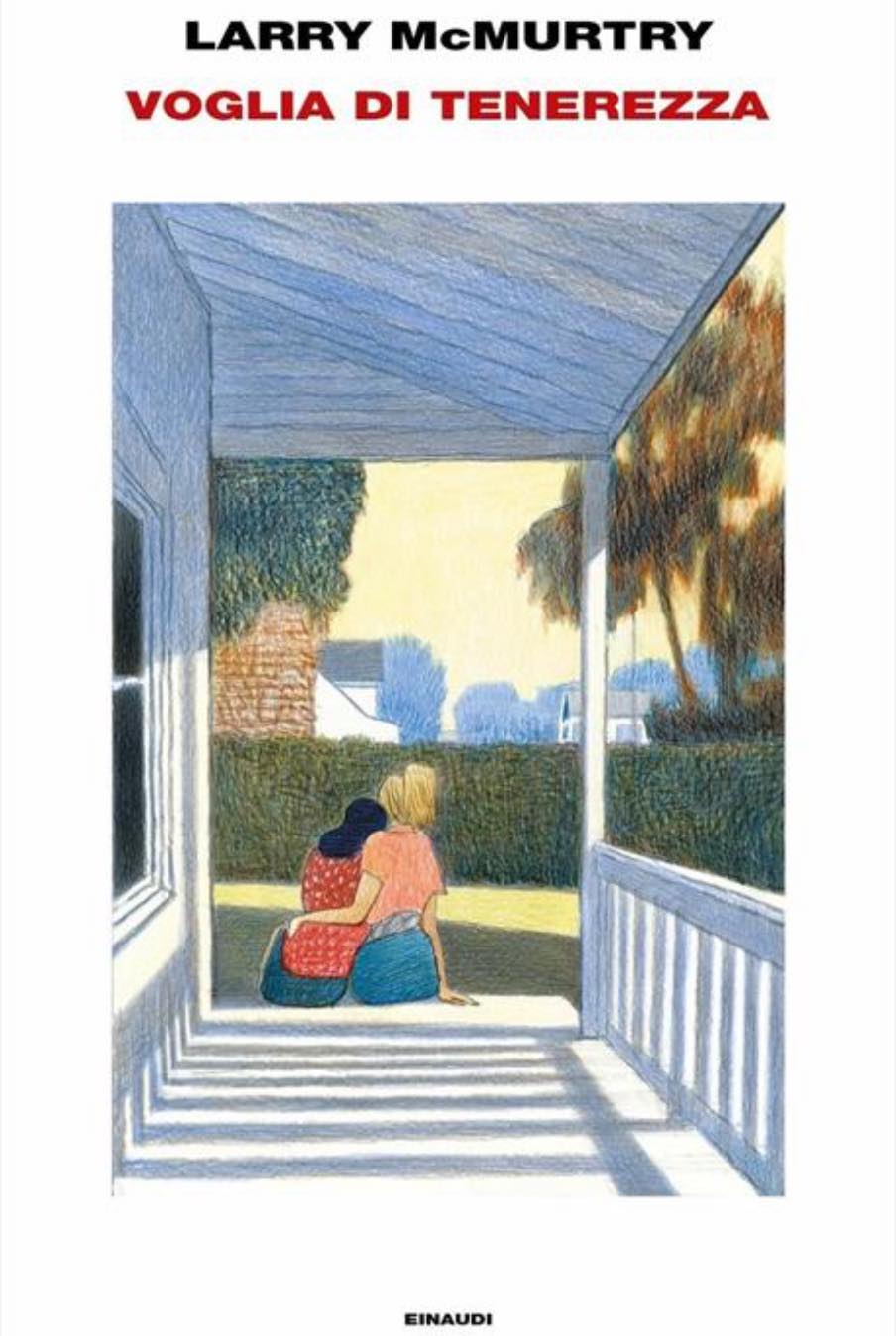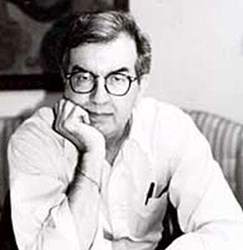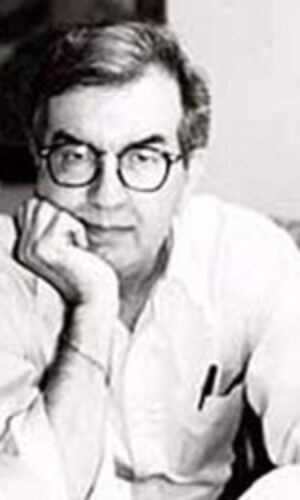Larry McMurtry-Voglia di tenerezza- Traduttore Margherita Emo-Editore Einaudi-Biblioteca DEA SABINA
Biblioteca DEA SABINA
Larry McMurtry-Voglia di tenerezza- Traduttore Margherita Emo-Editore Einaudi-
Descrizione-del libro di Larry McMurtry-In “Voglia di tenerezza” siamo ben lontani dall’epopea western cantata da Larry McMurtry in “Lonesome Dove”. In questo romanzo si racconta principalmente la vita di due donne, madre e figlia, diverse tra di loro, fisicamente e caratterialmente. Aurora, la madre, è un’affascinante vedova quarantanovenne che ama farsi corteggiare dagli uomini, frivola, vanitosa, brillante ed impulsiva. Emma, la figlia, disordinata, poco ambiziosa, vive un matrimonio infelice, anche se sembra voler trovare una via di uscita che possa regalarle serenità. Altri personaggi circondano queste due donne: gli spasimanti, la donna di servizio, i vicini di casa, le amiche, ognuno di loro con la propria storia da raccontare.

McMurtry ci regala pagine divertenti, essendo capace di rendere i personaggi empatici e soprattutto umani, con le loro debolezze, manie e personalità. Ma è anche capace di toccare il nostro animo e di commuoverci, perché la vita riserva sempre gioie e dolori.
È trascorso molto tempo da quando vidi il film. La sensazione che provo oggi, ripensando a quest’ultimo, è che mi toccò molto, forse più del libro.Descrizione scritta da Elisabetta Porta-
Cenni biografici di Larry Mcmurtry

Larry Jeff McMurtry (June 3, 1936 – March 25, 2021) è stato un autore e sceneggiatore americano. Nato nel 1936 a Archer City, nel Texas, romanziere e sceneggiatore, nel 1986 ha vinto il premio Pulitzer per la narrativa con Lonesome Dove e nel 2006 l’Oscar per la migliore sceneggiatura non originale con I segreti di Brokeback Mountain. Da molti dei suoi romanzi sono stati tratti film di grande successo come Hud il selvaggio, L’ultimo spettacolo e Voglia di tenerezza. Einaudi ha pubblicato, in una nuova traduzione, Lonesome Dove (2017), Le strade di Laredo (2018) e Voglia di tenerezza (2021). Nel 2024 esce Il cammino del morto (Einaudi).
Larry Jeff McMurtry (June 3, 1936 – March 25, 2021) was an American novelist, essayist, and screenwriter whose work was predominantly set in either the Old West or contemporary Texas.[1] His novels included Horseman, Pass By (1962), The Last Picture Show (1966), and Terms of Endearment (1975), which were adapted into films. Films adapted from McMurtry’s works earned 34 Oscar nominations (13 wins). He was also a prominent book collector and bookseller.
His 1985 Pulitzer Prize-winning novel Lonesome Dove was adapted into a television miniseries that earned 18 Emmy Award nominations (seven wins). The subsequent three novels in his Lonesome Dove series were adapted as three more miniseries, earning eight more Emmy nominations. McMurtry and co-writer Diana Ossana adapted the screenplay for Brokeback Mountain (2005), which earned eight Academy Award nominations with three wins, including McMurtry and Ossana for Best Adapted Screenplay. In 2014, McMurtry received the National Humanities Medal.[2]
Tracy Daugherty‘s 2023 biography of McMurtry quotes critic Dave Hickey: “Larry is a writer, and it’s kind of like being a critter. If you leave a cow alone, he’ll eat grass. If you leave Larry alone, he’ll write books. When he’s in public, he may say hello and goodbye, but otherwise he is just resting, getting ready to go write.”[3]
Early life and education
McMurtry’s birth certificate states that he was born in Wichita Falls, Texas, the son of Hazel Ruth (née McIver) and William Jefferson McMurtry.[4] He grew up on his parents’ ranch outside Archer City, Texas. The city was the model for the town of Thalia which is a setting for much of his fiction.[5] He earned a BA from the University of North Texas in 1958 and an MA from Rice University in 1960.[6][7]
In his memoir, McMurtry said that during his first five or six years in his grandfather’s ranch house, there were no books, but his extended family would sit on the front porch every night and tell stories. In 1942, McMurtry’s cousin Robert Hilburn stopped by the ranch house on his way to enlist for World War II, and left a box containing 19 boys’ adventure books from the 1930s. The first book he read was Sergeant Silk: The Prairie Scout.[8]: 1–8
Career
Writer
During the 1960–1961 academic year, McMurtry was a Wallace Stegner Fellow at the Stanford University Creative Writing Center, where he studied the craft of fiction under Frank O’Connor and Malcolm Cowley,[9] alongside other aspiring writers, including Wendell Berry, Ken Kesey, Peter S. Beagle and Gurney Norman. (Wallace Stegner was on sabbatical in Europe during McMurtry’s fellowship year.[10])
McMurtry and Kesey remained friends after McMurtry left California and returned to Texas to take a year-long composition instructorship at Texas Christian University.[11] In 1963, he returned to Rice University, where he served as a lecturer in English until 1969, and a visiting professor at George Mason College (1970) and American University (1970–71).[12] He entertained some of his early students with accounts of Hollywood and the filming of Hud, for which he was consulting. In 1964, Kesey and his Merry Pranksters conducted their noted cross-country trip, stopping at McMurtry’s home in Houston. The adventure in the day-glo-painted school bus Furthur was chronicled by Tom Wolfe in The Electric Kool-Aid Acid Test. That same year, McMurtry was awarded a Guggenheim Fellowship.[13]
McMurtry won numerous awards from the Texas Institute of Letters: three times the Jesse H. Jones Award—in 1962, for Horseman, Pass By; in 1967, for The Last Picture Show, which he shared with Tom Pendleton’s The Iron Orchard; and in 1986, for Lonesome Dove. He won the Amon G. Carter award for periodical prose in 1966 for Texas: Good Times Gone or Here Again?[14] and the Lon Tinkle Award for Lifetime Achievement in 1984.[15] In 1986, McMurtry received the annual Peggy V. Helmerich Distinguished Author Award from the Tulsa Library Trust.[16] He reflected on his 1985 Pulitzer Prize-winning novel, Lonesome Dove, in Literary Life: A Second Memoir (2009), writing that it was the “Gone With the Wind of the West … a pretty good book; it’s not a towering masterpiece.”[17]
He described his method for writing in Books: A Memoir. He said that from his first novel on, he would get up early and dash off five pages of narrative. When he published the memoir in 2008, he said this was still his method, although by then, he wrote 10 pages a day. He wrote every day, ignoring holidays and weekends.[8] McMurtry was a regular contributor to The New York Review of Books.[18]
McMurtry was a vigorous defender of free speech and, while serving as president of PEN American Center (now PEN America) from 1989 to 1991, led the organization’s efforts to support Salman Rushdie,[19] whose novel The Satanic Verses (1988) caused a major controversy among some Muslims, with the Supreme Leader of Iran, Ayatollah Ruhollah Khomeini, issuing a fatwā calling for Rushdie’s assassination, after which attempts were made on his life.[20]
In 1989, McMurtry testified on behalf of PEN America before the U.S. Congress in opposition to immigration rules in the 1952 McCarran–Walter Act that for decades permitted the visa denial and deportation of foreign writers for ideological reasons.[17] He recounted how before PEN America was to host the 1986 International PEN Congress, “there was a serious question as to whether such a meeting could in fact take place in this country… the McCarran–Walter Act could have effectively prevented such a gathering in the United States.” He denounced the relevant rules as “an affront to all who cherish the constitutional guarantees of freedom of expression and association. To a writer whose living depends upon the uninhibited interchange of ideas and experiences, these provisions are especially appalling.” Subsequently, some provisions that excluded certain classes of immigrants based on their political beliefs were revoked by the Immigration Act of 1990.[21]
Antiquarian bookstore businesses
Texas While at Stanford, McMurtry became a rare-book scout.[22] During his years in Houston, he managed a bookstore called the Bookman. In 1969, he moved to the Washington, D.C., area. In 1970 with two partners, he started a bookshop in Georgetown, which he named Booked Up. In 1988, he opened another Booked Up in Archer City. It became one of the largest antiquarian bookstores in the United States, carrying between 400,000 and 450,000 titles. Citing economic pressures from Internet bookselling, McMurtry came close to shutting down the Archer City store in 2005, but chose to keep it open after great public support.
In early 2012, McMurtry decided to downsize and sell off the greater portion of his inventory. He felt the collection was a liability for his heirs.[23] The auction was conducted on August 10 and 11, 2012, and was overseen by Addison and Sarova Auctioneers of Macon, Georgia. This epic book auction sold books by the shelf, and was billed as “The Last Booksale”, in keeping with the title of McMurtry’s The Last Picture Show. Dealers, collectors, and gawkers came out en masse from all over the country to witness this historic auction. As stated by McMurtry on the weekend of the sale, “I’ve never seen that many people lined up in Archer City, and I’m sure I never will again.”[24]
In April 2006, McMurtry was elected a member of the American Antiquarian Society.[25]
Film and television
McMurtry became well known for the film adaptations of his work, especially Hud (from the novel Horseman, Pass By);[26] Peter Bogdanovich‘s The Last Picture Show;[27] James L. Brooks‘s Terms of Endearment, which won five Academy Awards, including Best Picture (1984);[28] and Lonesome Dove, a popular television miniseries starring Tommy Lee Jones and Robert Duvall.[29][30]
In 2006, he was co-winner (with Diana Ossana) of both the Best Screenplay Golden Globe[31] and the Academy Award for Best Adapted Screenplay for Brokeback Mountain, adapted from a short story by E. Annie Proulx. He accepted his Oscar while wearing a dinner jacket over jeans and cowboy boots.[32] In his speech, he promoted books, reminding the audience the movie was developed from a short story. In his Golden Globe acceptance speech, he paid tribute to his Swiss-made Hermes 3000 typewriter.[33]
Personal life
McMurtry married Jo Scott, an English professor who has authored five books.[34] Before divorcing, they had a son together, James McMurtry. Both James and his own son, Curtis McMurtry, are singer/songwriters and guitarists.[35]
In 1991 McMurtry underwent heart surgery.[36] During his recovery, he suffered severe depression. He recovered at the home of his future writing partner Diana Ossana and wrote his novel Streets of Laredo at her kitchen counter.[37][38]
McMurtry married Norma Faye Kesey, the widow of Ken Kesey, on April 29, 2011, in a civil ceremony in Archer City.[39]
McMurtry died on March 25, 2021, at his home in Tucson, Arizona. He was 84 years old.[40]
It was announced in early 2023 that McMurtry’s personal property, including his writing desk, typewriters and personal book collection would be sold at public auction by Vogt Auction in San Antonio, Texas, on May 29, 2023.[41]
Fiction
Stand-alone novels
- 1982: Cadillac Jack[42]
- 1988: Anything for Billy (fictionalized biography of Billy the Kid)[43]
- 1990: Buffalo Girls (fictionalized biography of Calamity Jane).[44] adapted for TV as Buffalo Girls[45]
- 1994: Pretty Boy Floyd (with Diana Ossana) (fictionalized biography of the titular gangster)[46]
- 1997: Zeke and Ned (with Diana Ossana) (fictionalized biography of the last Cherokee warriors)[47]
- 2000: Boone’s Lick[48]
- 2005: Loop Group[49]
- 2006: Telegraph Days[50]
- 2014: The Last Kind Words Saloon[51]
Thalia: A Texas Trilogy
Larry McMurtry’s first three novels, all set in the north Texas town of Thalia following World War II.
- 1961: Horseman, Pass By,[52] adapted for film as Hud[26]
- 1963: Leaving Cheyenne, adapted for film as Lovin’ Molly[53]
- 1966: The Last Picture Show, adapted as film of the same name[54]
Harmony and Pepper series
The books follow the story of mother/daughter characters Harmony and Pepper.
Duane Moore series
The books follow the story of character Duane Moore.
- 1966: The Last Picture Show – adapted for film as The Last Picture Show[54]
- 1987: Texasville – adapted for film as Texasville[57]
- 1999: Duane’s Depressed[58]
- 2007: When the Light Goes[59]
- 2009: Rhino Ranch: A Novel[60]
Houston series
The books follow the stories of occasionally recurring characters living in the Houston, Texas, area.
- 1970: Moving On (characters Patsy Carpenter/Danny Deck/Emma Horton/Joe Percy)[61]
- 1972: All My Friends Are Going to Be Strangers (Danny Deck/Jill Peel/Emma Horton)[61]
- 1975: Terms of Endearment (novel) (Emma Horton/Aurora Greenway) – adapted for film as Terms of Endearment[61]
- 1978: Somebody’s Darling (Jill Peel/Joe Percy)[62]
- 1989: Some Can Whistle (Danny Deck)[61]
- 1992: The Evening Star (Aurora Greenaway)[63] – adapted for film as The Evening Star[64]




